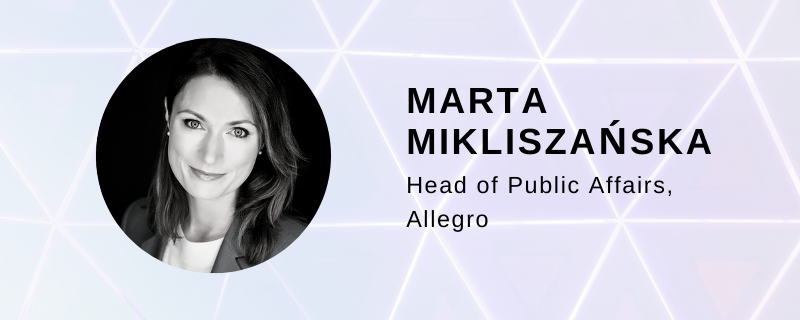Economy & Tech
News
Poland’s AI Ambitions Curbed by US Chip Restrictions
17 January 2025
26 November 2020
A classic strategy mixed with a focus on sustainability and locally-sourced goods has been the recipe for success of a Polish giant.
Since the start of the millennium, few companies in Central Europe have accomplished as much as Allegro in Poland.
Allegro has gone from a classic start-up, working out of a garage to becoming the sixth-largest online retailer in Europe, and the company considers itself the regional leader of online shopping.
Over 50 per cent of Polish Internet users visit the Allegro website every month and the company has over one million products sold daily. But the scale of this success has not come quickly or easily, and the people behind Allegro believe it is thanks to the business model they keep ever-present in their daily activities and future strategic planning.

The customers come first, which is certainly not novel, but still essential to maintaining a competitive advantage in dynamic markets like Central Europe. How this is realised in each company does differ, however, and here Allegro focuses on continually improving the customer experience.
The second pillar is the merchants. Allegro has over 120,000 Polish merchants on their platform, of which ninety-five per cent are micro, small or medium enterprises.
The reason they are attracted to the platform is that the company helps them to create their own brand and helps their reputations grow. They believe that – especially in the current situation with the lockdown restrictions – now is the time for the brick and mortar stores to go online or increase their presence in order to survive intensified economic hardship.
”Allegro offers its merchants a wide range of financial tools, such as easy access to bank credit, which enables Polish entrepreneurs to keep their financial liquidity and to help them to run the business more easily. But Allegro also offers analytical tools designed to help the companies monitor their businesses.”
The third pillar is the employees. Allegro wants to be the best place for personal development, especially for those with talent in IT and retail.
The fourth pillar relates to Allegro’s operations in the context of the environment and of social responsibility, as well as its responsibility towards the local communities that they operate in.
”Thanks to Allegro’s cooperation with other partners and NGOs, shopping can become more successful and safer during the pandemic, mainly by encouraging people to shop online.”
Moreover, during these last several months of the pandemic, Allegro has seen trends in e-commerce that have shifted to supporting local businesses. The majority of the Polish customers have changed and decided to support local merchants, by doing so it helps with the robustness of the market.
Then there are the new sustainability strategies for the next stage of development, which will involve greener alternatives. The company wants to refocus its efforts on cooperation between merchants and customers as well as some logistic banking partners to give them the options for environmentally conscience shopping.
For instance, Allegro can allow the customer to choose what form of delivery option to make, perhaps a greener alternative using lockers and the collection points. Allegro currently has 25,000 such points around Poland.
This would help raise the awareness of the consumers about sustainable practices so Allegro can help the companies recover economically but also in an ecologically-friendly manner.
This is a summary of a session with Marta Mikliszańska (Head of Public Affairs, Allegro) at the New Europe 100 Forum on 27-28 October 2020, edited by Galan Dall, Editor-at-Large of Visegrad Insight. Find out more about the upcoming New Europe 100 Forum, future activities and our partners here. For updates, follow @NewEurope100.
The article is part of a project supported by the International Visegrad Fund.